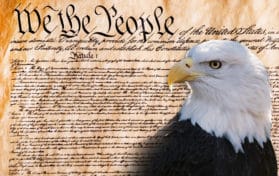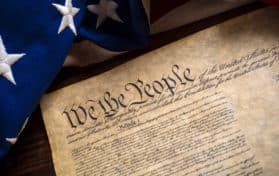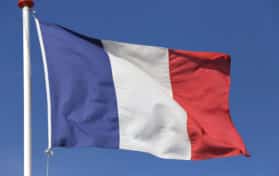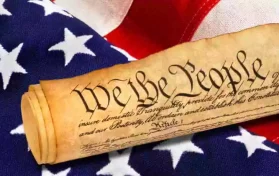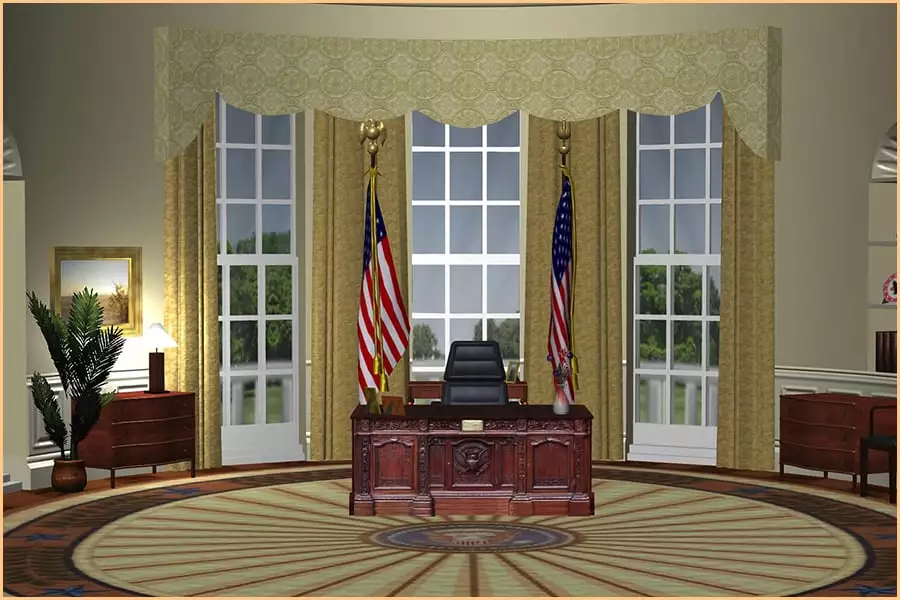
Martial law is used in extenuating circumstances during actual emergencies. Its application is typically used to get back control of territories in cases where local authorities have been overwhelmed.
It is also used during times of significant natural disasters such as earthquakes and hurricanes. Martial law grants the express military power to enforce laws.
Civilian law is suspended and not applicable for that duration when it is in place. It is used as a measure of last resort to establish order and suppress rebellions, mutiny, and civil unrest.
The Constitution of the United States does not state where that imposition of martial law is applicable.
So, can a president stay in office during martial law?
The President of the United States cannot use martial law to stay in office. Martial law is imposed with the sole purpose of reestablishing civilian rule in the event of rebellions, mutiny, and civil unrest. The President cannot invoke Posse Comitatus Acts independently or use them to stay in office.
How Martial Law Has Been Used In The United States
Martial law has been used in the United States before under compelling circumstances. Its usage is relatively uncommon, as situations that necessitate its use don’t often occur. Let us look at the use of martial law in America.
1. The American Revolution
The United States used the first-time martial law during the American revolution. The imposition of martial law came from the Boston Tea Party protests.
American tea farmers were disenfranchised when the government allowed duty-free importation of Chinese tea into the country. As a result, the government passed the Massachusetts Government Act.
The Massachusetts Government Act imposed a government in the state and banned all public gatherings.
2. The War of 1812
The federal government imposed martial law in Louisiana in the battle of New Orleans. The law was imposed by Andrew Jackson when the United States was at war with the British. Martial law stayed in place after the British finished the war.
3. The Mormon War
In 1943 Joseph Smith was set for trial for the attempted murder of the Missouri governor. Smith escaped arrest.
He imposed martial law in an attempt to avoid arrest and trial by ordering the Nauvoo militia to defend the municipality from the imminent arrival of forces meant to arrest him.
Aside from attempted murder, Joseph Smith was also wanted to instigate property damage and violate the freedom of speech.
The then Illinois governor Ford abolished the illegally imposed martial law before succeeding in the arrest of Joseph Smith. Joseph, however, managed to escape and was later beaten to death by an angry mob.
4. Utah War
The federal government declared martial law against the state of Utah in 1857. Governor Brigham Young’s reign saw the unlawful imposition of theodemocracy. Theodemocracy was a political ideology founded by Joseph Smith.
Governor Brigham Young had also rejected three federally appointed state Judge Perry Brocchus, Lemuel Brandenbury, and Secretary Broughton Harris. Consequently, it was fit that the federal government take action against Governor Brigham.
The United States martial were met with some resistance from Governor Brigham but eventually managed to take control of the state.
5. The Great Chicago Fire
Following the great disaster in Chicago in 1871, the city was placed under the administration of Phillip Sheridan. Phillip was a United States Army general.
6. Idaho 1892
The federal government imposed martial law in Idaho after an industrial strike turned violent and destructive. The workers blew up a mill, resulting in an explosion that blew up a high-rise building.
As a response, the federal government intervened and quelled the riots, arresting the instigators in the process.
7. Hawaii World War II
Following the Japanese attack on Perl Harbor, martial law was instituted on the island of Hawaii. Governor Poindexter declared martial law for the federal government to manage the situation.
8. Alabama 1954/1961
Governor Gordon Persons put Russell County under martial law, following an uncontrolled increase in gang-related crime. The situation was deteriorating fast, and the federal government had to intervene.
In 1961 Governor Patterson unwittingly declared martial law to prevent the state’s desegregation. He claimed agitation was caused by folk attempting to interfere with the state’s traditions and county.
The Posse Comitatus Act
What is the Posse Comitatus Act? The Act is instituted as a judicial principle. It acts as a check and balance measure, where the government’s executive arm is put in check.
The Act prevents the Commander in Chief from using the armed forces to police civilians. The Act allows the armed forces to participate in law enforcement only when authorized to do so under law.
The Act inhibits the following categories from policing civilians:
- The Coast Guard
- The navy
- The army
- The Air Force
- The Marine Corps
- The Space Force
What happens if the President violates posse comitatus?
The Constitution of the United States lays forth the following punitive measures:
Impose a fine of an unspecified amount, a prison sentence not exceeding two years, or both.
Statutory And Constitutional Exemptions To The Posse Comitatus Act
The exemption to the Posse Comitatus Act is provided for in the Insurrection Act. The Insurrection Act allows the President to use the armed forces when requested by a state governor.
Their situations outlined in the Insurrection Act that allows the armed forces to be used to police civilians are:
- Large scale civil disorder
- Mass rebellion
- Insurrections
Homeland security is exempt from following directives under the Posse Comitatus Act. The Constitution fails to include Homeland Security as an inclusive to the Posse Comitatus Act.
On request by the Attorney General in exceptional circumstances, the Posse Comitatus Act may be limited.
The threat level has to be serious to warrant such a request. An example where such a request may be applicable is in the event of a nuclear bomb threat.
What of presidential declarations? The President has no authority to invoke martial law through declarations. The judiciary would expressly revoke any such declaration, as it would be supervening illegality.
It is one of the various ways the Constitution ensures that the principle of checks and balances works.
The Role Of Congress In Martial Law
Congress is the highest law-making authority in the United States. The Congress consists of the Senate and the House of Representatives. The core function of Congress is to make federal laws.
What is the role of Congress in Martial Law?
The Constitution of the United States gives Congress authority to approve or reject presidential requests for martial law.
It is illegal for a sitting president to impose martial law on any United States territory without the approval of Congress.
Any requests for martial law have to be supported by a special resolution by members of Congress. It requires that the request clears both houses of the bicameral legislative organ to be legally approved.
What if Congress is in recess? If the President wants to declare martial law, he will have to reconvene Congress. The Constitution has given the United States power to convene the legislative organ during emergencies.
Can The President Order The Dissolution Of Congress After Declaring Martial Law?
The President does not have the authority to dissolve Congress under any circumstance. The Constitution has protected Congress under the doctrine of separation of powers. No branch of the government shall directly interfere or exert undue influence on the other.
The Constitution gives the President the authority to convene Congress but never dissolve it.
How Congress Keeps The President In Check
There are several ways in which the Constitution ensures that Congress keeps the President in check. They include:
1. Impeachment
The legislature has the power to impeach the President if they grossly violate their terms of office. Impeachment is a complicated process that requires the support of both houses in the bicameral legislature.
2. Congressional veto power
Congress has the authority to reject presidential vetoes on bills. Once the house has passed a bill, and the President vetoes it, it can still become law. It would only require a joint resolution of the house.
3. Controlling fiscal policy on expenditure
Congress is the only body to approve the budget and originate money bills.
Conclusion
The President of the United States enjoys several powers as granted to them by the Constitution of the United States. There are limitations to the powers of the President. They are set forth by the doctrines of checks and balances and separation of powers.
The President lacks the authority to invoke Posse Comitatus Acts. These are the acts that authorize the administration of martial law over the territory of the United States. The President also needs the states to approve the deployment of troops to enforce martial law.


